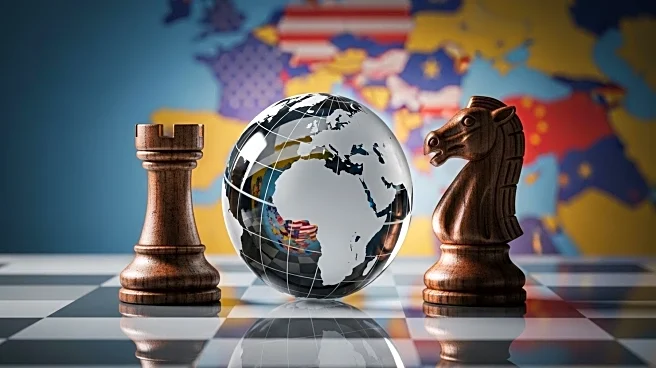What is the story about?
What's Happening?
Europe's relationship with the US and China is increasingly complex, as it navigates competing forces and strategic dilemmas. Historically, Europe's China policy was aligned with Washington's approach, but recent shifts in US-China relations have left Europe reevaluating its stance. The EU has adopted a more cautious approach towards China, viewing it as a competitor and systemic rival. This includes measures like investment screening and export controls. However, the unpredictability of US policy under President Trump complicates Europe's position, as it seeks to balance trade protectionism and technological collaboration with China.
Why It's Important?
The evolving dynamics between Europe, the US, and China have significant implications for global security and economic stability. Europe's strategic decisions regarding China could impact its ability to address security challenges, such as the war in Ukraine, and economic issues, like trade dependencies. The EU's approach to China also influences its role in global initiatives, such as the energy transition and infrastructure development. As Europe grapples with these dilemmas, its ability to maintain a coherent foreign policy and protect its interests is crucial for its future.
What's Next?
Europe may need to develop a more independent and strategic approach to its relationship with China, considering the potential for US policy shifts. This could involve strengthening trade protectionism, encouraging technology transfers, and collaborating on global initiatives. Additionally, Europe must address internal challenges, such as the rise of far-right forces and threats to liberal democracy, which could affect its foreign policy decisions. As Europe navigates these complexities, it must balance its security interests with economic opportunities and maintain its role in global affairs.
Beyond the Headlines
The strategic dilemmas facing Europe highlight broader issues related to global governance and the future of liberal democracy. Europe's relationship with China and the US is influenced by underlying factors, such as economic dependencies and political ideologies. Addressing these challenges requires a nuanced understanding of global dynamics and a commitment to democratic values. Europe's ability to navigate these complexities will shape its role in the international community and its capacity to address pressing global issues.















